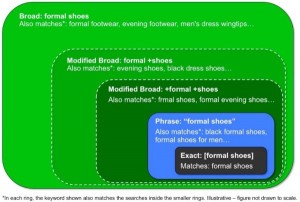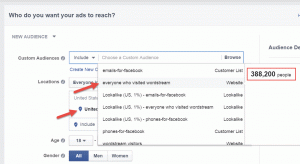A common thread in recruitment is hiring high-performing talent. How do you uncover individuals that execute on the highest level?
“There is something that is much more scarce, something rarer than ability. It is the ability to recognise ability.” – Robert Half
There isn’t one thing that makes someone a high performer, which makes it difficult to discovery in the hiring process. It’s tough to determine what is signal and what is noise on a resume or in-person.
A recruiting system can’t filter qualitatively.
To help navigate through the talent pool, here are a few indicators and considerations to uncover high performers:
High performers won’t be a perfect match:
A high performer needs to be challenged and career moves have resolve. Regardless if employed or unemployed, they need a new purpose and their next step will serve as an advancement in their career path.
Yet, job descriptions are written to find the most qualified creating a paradox. A high performer can be most qualified if interviewing in their current role. But, they aren’t likely to interview for the same role, given this intrinsic need (outside of executive recruiting).
Top performers may not check all the boxes. And your job description may be kicking them out of the process, which is why you aren’t seeing them. Resist overinflating requirements to not eliminate high performers who want to change or to level-up.
High performers responsibilities outweigh their title:
A candidate who is accountable for more senior duties is demonstrating their drive. They siege responsibility and/or their leadership trusted in their ability to provide stretch opportunities
They have peace in failing, which allows them to roam outside their comfort zone. When they make a mistake, they keep moving; quickly overcomes barriers which offer greater capacity.
High performers will know their strengths and weakness:
Performance reviews reward their drive; actively seeks feedback. They know what’s in their wheelhouse and their greatest opportunity for improvement; holds themselves personally accountable for their (employee) engagement.
When asked in an interview, it won’t be a vague response or try to present a strength as a weakness. They will be transparent and have no reservations in answering. This will also reveal insight of what they will want in their development plan.
High performers know their individual contribution:
They will have a keen understanding of their impact on the team/business and how they have previously driven growth. Similar to performance reviews, this is what gets them up in the morning.
If not already in their resume (shame on them), inquiring what a candidate previously did to augment their role can cut through the noise. High performers leave it better than they found it.
High performers may not be most-liked in the process:
It’s now common practice for candidates to be hired by council. This consists of peers and cross-functioning partners. But this creates noise and bias –a lot of cooks in the kitchen. And high performers have a poised edge that doesn’t lend itself to concentrated impressions in short interviews.
It shouldn’t be a question if candidates are “liked” at all, but whether they will be respected. When you get down to those final candidates, small, insignificant preferences determine who is hired. Overweighting likeability may mean the difference between a good or great hire.
High performers dabble with the future:
Staying informed with category trends and forthcoming needs is a part of their routine. Continuous improvement is self-regulated and they develop new skills through their own curiosity. A high performer will have a POV on the future and their thoughts on how to get here.
You may feel that a high-performer is too forward-looking –won’t culturally fit since the organization isn’t there yet. But this is the person that you need to remove status quo. This person will be a change agent to break the mold.
The lack of ability to recognize abilities lies in the focus on abilities. Skills, experience, and how they did in an interview doesn’t differentiate performance.
Centering on the accomplishments of a candidate vs. the blocking and tackling of your need will provide insight if this individual is remarkable.
Now, this is not an all-encompassing list and an isolated indicator isn’t sound enough to signal a high performer. And let me say this, there is nothing wrong in hiring solid individuals who consistently performs.
But we are in an environment where roles are evolving, submitting business cases to fill new needs. And justify why we require replacing, exiting employees. Not to forget, that each hire is a reflection on a leader.
It’s not easy to bare performance during the hiring process and if a candidate will be extraordinary. The “no-brainer” hires will give you most likely give you a safe return.
Yet, sometimes you need that bar raised and it may have to come from an unusual suspect.
Business & Finance Articles on Business 2 Community(57)





